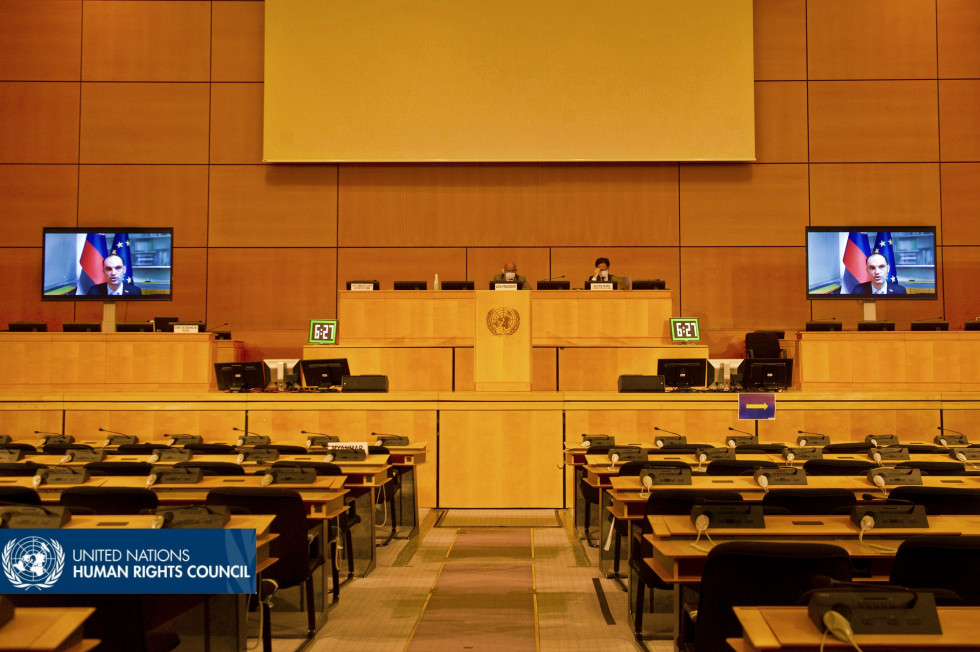UN Human Rights Council concludes 46th session, the first to take place entirely online
In the five-week session, the countries addressed a wide range of issues, including human rights situation in Belarus, Myanmar, Sri Lanka, the Occupied Palestinian Territories, North Korea, South Sudan and Syria, where the conflict has been on-going for the past 10 years. Among particularly important decisions, the Office of the High Commissioner for Human Rights was granted a mandate to collect, analyse and archive information and evidence of gross human rights violations during and after the Belarus presidential elections.
The Slovenian delegation took part in general debates, interactive dialogues and negotiations on resolutions, with Minister of Foreign Affairs Anže Logar addressing the Council at the High-Level Segment. During the session, Slovenia supported a virtual event on ageism, which presented the first global report on this topic. At the annual discussion on the rights of the child, a representative of the Children's Parliament of Slovenia spoke on behalf of Slovenia’s children.
As part of the 46th session, Slovenia made national statements in a debate with the UN High Commissioner for Human Rights and participated in the interactive dialogues on topics ranging from the environment, minorities, and freedom of religion to violence against children, children in armed conflict and human rights defenders. Slovenia also addressed the human rights situation in Belarus, accountability and justice for all violations of international law in the Occupied Palestinian Territories, including Jerusalem, and the human rights situation in Iran. Slovenia called on Iran to comply with a letter from seven UN special rapporteurs. The Quadrilateral Group (Austria, Liechtenstein, Slovenia, Switzerland) called for the global abolition of the death penalty. The Trilateral Group (Austria, Croatia, Slovenia) addressed the importance of a child rights-based approach to achieving sustainable development goals. Together with as many as 65 other countries, Slovenia called for the continuation of the debate on the global recognition of the right to a healthy environment.
The Council also adopted resolutions on economic, social and cultural rights, the right to privacy, democracy and the rule of law, freedom of religion and belief, torture and other forms of degrading treatment or punishment, and the rights of persons with albinism. Slovenia welcomes the presentation of the ground-breaking joint statement by the United States of America and the African Group addressing racism, which won the support of over 150 countries, including the entire EU.
Slovenia welcomes the fact that the UN Human Rights Council as the main intergovernmental body responsible for human rights in the UN system has found a way to operate unhindered, despite the current epidemiological situation. The unanimous decision to introduce virtual voting in the Council represents a ground-breaking decision for the international community.


